
 Flash News
Flash News
Accident on the Shkodër-Muriqan axis, two injured
Iran retaliates against US, attacks US air base in Qatar with missiles
KPA upholds dismissal of prosecutor Çlirim Sino
Abuse of tenders and falsification of documents, GJKKO gives sentences to 4 former officials (NAMES)
A 70-year-old man is found dead in the Buna River

By Anila Hoxha
If there is a phrase that will stay with me for a long time about the affairs of justice in Albania, it is the answer that the President of the Constitutional Court Bashkim Dedja gave me when I asked him: what is it like to pass the vetting?
He said right there and then - like going through the grave for a long time! The answer was related to the difficulty but also the analysis that the justice official must have made on the processes that were being carried out against the system. He must have seen the problems in the eye. And when you admit that you have some problems, you get ready to solve them!
The next problem is the National Bureau of Investigation, or the Albanian FBI. When I wrote about the five-year mandate of the head of the BKH, the conflicts between the head and the heads of SPAK, what I was saying was related to the vacuums left in the law, which bring a lot of force from the more competent to the less competent (subordinate), to the denigration or dissolution/zeroing of the less powerful official.
It is publicly known that SPAK had set a deadline of June 6, within which the candidates had to submit documentation showing their ambition for BKH director. A total of 13 names, among them some are being promoted for unfulfilled heroism and some had their hands tied to make a law.
No way.
Now it turns out that SPAK is giving 11 of them a few more days to complete the documentation they have not submitted in accordance with the law.
This is a paradox.
Giving "oxygen" beyond the legal deadlines to those who should know well what the criteria and documents are means turning the process into a bargaining chip.
If there are no other reasons for which this process should be told to the public through transparency why the control of the 13 has actually been suspended. If there is a crisis among the members of the selection committee or something else is wrong, it should be said. It is not only about solutions but also about problems.
Ballazi!
We come to the problems of the Law and the KLP that I mentioned earlier and that, closing their eyes, the competent authorities agree that by approaching the problem from the side, it will dissolve by itself
1- On 06.06.2025, the deadline for candidacy for the position of Director of the BKH ended
2- The Constitution with the amendments of 2016, when the establishment of an Investigation Structure under the Special Prosecutor's Office was conceived, does not recognize the name National Bureau of Investigation but the Special Investigation Unit (Article 148/4). The legislator in the organic law No. 65/2016, which regulates the activity of the entire SPAK (Special Anti-Corruption Structure), has determined the name National Bureau of Investigation (as it seems in agreement and synchronous with the American structure FBI (Federal Bureau of Investigation).
3- The Law stipulates that: “The BKH is a specialized structure of the Judicial Police, which operates only under the direction of the Special Prosecution. The Director, Deputy Director and investigators of the BKH enjoy the status of Judicial Police officer. 2. The internal organization of the BKH is regulated by the joint order of the Director of the BKH and the Director of the Special Prosecution. 3. The BKH consists of the director, deputy director, investigators and administration employees.... 4. The organization and functioning of the BKH Judicial Police services is regulated in accordance with this law and the orders of the Director of the BKH, with the consent of the Director of the Prosecution "
4 - The process of appointing the Director of the BKH is regulated by Law No. 95/2016, “On the organization and functioning of institutions to combat corruption and organized crime”, articles 33-35 of which stipulate that: (Article 33) “The Commission composed of the Head of the Special Prosecution Office and two special prosecutors with more years of work experience as prosecutors, after an open and transparent recruitment process, recommends a candidate for Director of the BKH, who is appointed by the High Prosecutorial Council. The Director is appointed for a 5-year term, with the right to reappointment once. 3. Candidates for Director of the BKH must meet the security conditions of Article 6 of this law. A candidate cannot be appointed to the position as Director of the BKH without meeting the security conditions and the conditions of professional skills…”
5 - Article 34 of the law defines the criteria that candidates for Director must meet and the most important are:
“…- Has completed the second cycle of university studies in law with a degree equivalent to a “Master of Science”, or higher police education;
- has work experience as a prosecutor, employee of the State Police or Judicial Police or investigator of the Bureau National Investigation Agency;
-has at least 5 years of work experience in cases related to criminal offenses in the field of corruption, organized crime or serious crimes;..”
6 - Article 35 of the above law regulates the dismissal, dismissal and suspension of the director:
“1. The Director of the BKH is dismissed from office by the High Prosecutorial Council when: a) his/her mandate ends; b) resigns; c) reaches retirement age. 2. The Director of the BKH is dismissed from office by the KLP, based on the recommendations of the Director of the Special Prosecution Office" (and this includes the criteria)
7 - Ms. Aida Hajnaj, as the current Director with a mandate until August 31, 2025, who had the right to reappointment once again, did not enter the race, as she maintains that the reappointment should be made directly by the KLP without a new competition.
According to the law, the role of the KLP is that of the appointing body that appoints and dismisses the Director of the BKH. The KLP has not adopted a specific regulation on the method of appointing the Director of the BKH.
Currently, an ad-hoc commission has been established at the Special Prosecutor's Office with three prosecutors, composed of Prosecutors Mr. Kraja, Mr. Dibra and headed by its director, Mr. Dumani. This commission verifies the fulfillment of the legal conditions, the integrity, wealth and professional preparation of the candidates. After a transparent and competitive process, it ranks the candidates and proposes a name for appointment to the KLP.
However, a quarrel between them in recent days must have put the process into crisis. And it seems that with the crisis caused, the chances of finding a new director by August 31 are few.
And we come to the next problem. The first question is:
- What is the KLP's discretion and the limits of action with the incoming candidacies?
After the procedure is completed, the commission created by the Special Prosecutor's Office prepares an extensive report on the entire procedure followed, the results and the ranking of candidates according to merit, and proposes a name (as a best practice) for appointment to the KLP.
Does the KLP have legal freedom to decide on the appointment after reviewing the received proposal?
Being a collegial constitutional body that decides by majority vote, the KLP must, before passing it for approval in a plenary session, pass it to the Commission, evaluate the candidate's file and draft the justification for the selection. The question that arises is: Does the Council have the right to reject the proposed candidate if it finds that he does not meet the necessary standards of integrity, professionalism or independence and select another from the list presented? What if the list comes to the KLP with one candidacy?
Personally, I support the idea that the KLP cannot only take on the role of a notary and is not obliged to appoint the first-ranked candidate proposed by the SPAK commission. It can refuse to appoint a candidate if it considers that he does not meet the professional or ethical criteria. The law does not oblige the KLP to choose the first-ranked candidate.
If the KLP rejects the only candidate proposed by SPAK, it cannot appoint someone else on its own, as it does not have the right to self-propose. SPAK must repeat the selection procedure and present a new candidate.
The role of the KLP in this process is not only formal, but also substantial. The law has created a mutual control mechanism between SPAK and KLP to guarantee that the management of the BKH is independent, qualified and with high professional integrity. This generates a functional institutional balance between: the Selection Authority of the Special Prosecution Office and the Appointing Authority, the KLP. This mechanism is a guarantee for the division of institutional powers and responsibilities between these two bodies. It serves the principle of checks and balances, and avoids the capture of investigative structures by a single hand.
However, the law does not provide for strict deadlines for a solution if all candidates are rejected, which remains in a normative vacuum. It also hypothetically creates a risk of institutional deadlock if the KLP, with a reasoned decision, repeatedly rejects SPAK candidates and there are no binding legal deadlines for closing the process.
In conclusion, wouldn't it be urgent for the KLP to adopt an internal regulation on the procedure for appointing the Head of the BKH, and wouldn't it be appropriate to also propose a legal amendment to fill this legislative gap?
Latest news




US bombings of Iran, Haxhiu: Radical groups bring the risk of escalation
2025-06-23 22:05:53
May 11, Bardhi: The DP was faced with the state and its other dark sides
2025-06-23 21:41:53



Kosovo - far from the Middle East, but close to the consequences
2025-06-23 20:24:48
War/ Iran notified Qatar before attack on US air base
2025-06-23 20:14:27
Accident on the Shkodër-Muriqan axis, two injured
2025-06-23 19:54:18
Is Albania at risk from radiation in case of nuclear attacks? Expert explains
2025-06-23 19:49:11

Another operation in Abu Dhabi, one of Dritan Gjika's associates arrested
2025-06-23 19:19:52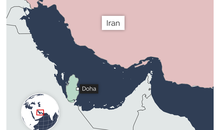
Iran retaliates against US, attacks US air base in Qatar with missiles
2025-06-23 19:00:47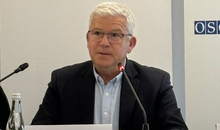
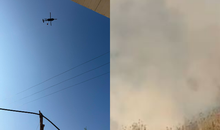
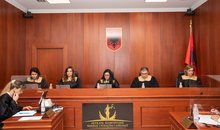
KPA upholds dismissal of prosecutor Çlirim Sino
2025-06-23 18:26:38
Changes in life and career growth, here are the three luckiest signs of the week
2025-06-23 18:23:05
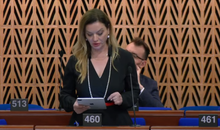

New Bureau Director
2025-06-23 17:40:36
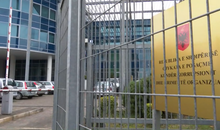

Rutte: US attacks on Iran 'did not violate international law'
2025-06-23 16:57:06


War/ Germany takes precautions in case of retaliation from Iran
2025-06-23 16:20:28
A 70-year-old man is found dead in the Buna River
2025-06-23 16:07:35
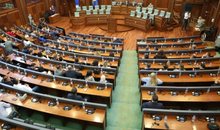
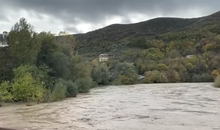
A dead body is found in the Shkumbin River
2025-06-23 15:21:50



Accident in Prrenjas, car hits and kills pedestrian
2025-06-23 14:20:12
Salianji requests conditional release, here's when the decision will be made
2025-06-23 14:03:10
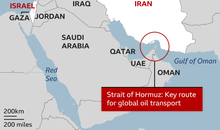
What is the Strait of Hormuz and what happens if Iran blocks it?
2025-06-23 13:28:25

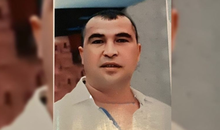
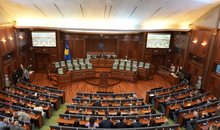
The 36th attempt fails, Kosovo still without a new Parliament
2025-06-23 12:17:11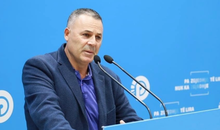
Recount/ Dogjani clashes with Ilir Rusmal: Steal votes, with what right?
2025-06-23 11:59:50
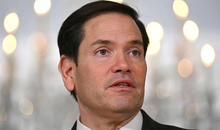
US asks China to stop Iran from closing Strait of Hormuz
2025-06-23 11:10:34

Trump talks about possible regime change in Iran after US bombings
2025-06-23 10:35:46
Presented at SPAK Majlinda Bufi
2025-06-23 10:18:30

Iranian generals threaten US with 'decisive response'
2025-06-23 09:46:00
4 more Albanians evacuated from Israel
2025-06-23 09:31:11

Fire at the waste landfill in Kukës, plumes of smoke spread towards the city
2025-06-23 08:52:12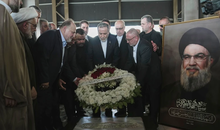
Why have some of Tehran's key allies stayed out of the Israel-Iran conflict?
2025-06-23 08:34:20
Sterilization PPP nears closure, real cost 53% more than contract
2025-06-23 08:19:00
Gunshot wound in Shkodra, perpetrator flees
2025-06-23 08:04:44
Horoskopi, çfarë kanë rezezervuar yjet për ju sot
2025-06-23 07:50:28
Temperatures up to 36 degrees, weather forecast for today
2025-06-23 07:40:11
Morning Post/ In 2 lines: What mattered yesterday in Albania
2025-06-23 07:22:30
Krim brenda familjes në Greqi, 61-vjeçari vret prindërit e tij të moshuar
2025-06-22 21:57:48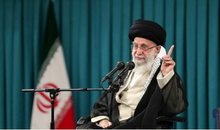
US airstrikes/ Iran warns: The game is not over!
2025-06-22 21:29:22

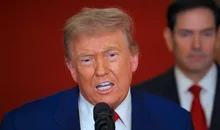
The US is involved in the war, why did Trump take the risk of attacking Iran?
2025-06-22 20:28:22
Israel-Iran conflict increases global tensions: Is the Albanian economy at risk?
2025-06-22 20:02:04
The US bombed Iran/ Rama: I support Trump's sincere efforts!
2025-06-22 19:40:21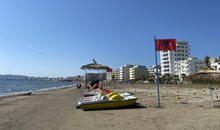
Bosnian tourist drowns in Durres
2025-06-22 19:05:48

The 10 strongest criticisms of the PACE report on the May 11 elections!
2025-06-22 18:41:21

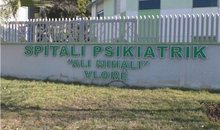
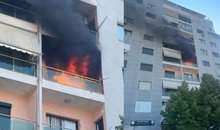
An apartment in Yzberisht is engulfed in flames
2025-06-22 17:32:13


Rinderpest/ The number of outbreaks rises to 10, here are the affected districts
2025-06-22 16:25:12
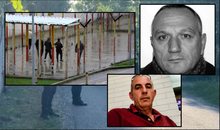

"Trump has opened Pandora's box"
2025-06-22 15:10:04
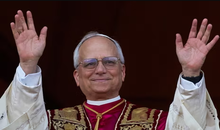
Pope Leo XIV: Stop the tragedy of war before it becomes an irreparable abyss
2025-06-22 14:24:22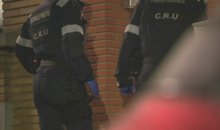
Criminal group busted in Belgium, 10 Albanians among those arrested
2025-06-22 14:00:58
Cities race for tourists, Tirana cheapest, but busiest
2025-06-22 13:35:53
Kurti supports US strike: International security needs fewer nuclear weapons
2025-06-22 13:18:54
Selling drugs in the former Bllok, 23-year-old arrested
2025-06-22 12:57:58
Berisha supports US strike on Iran: Strong call for overthrow of dictatorship
2025-06-22 12:39:35
Starmer supports US attack on Iran, calls on Tehran to return to negotiations
2025-06-22 12:20:56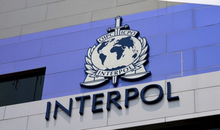
Sentenced to 8 years in prison in Italy, 33-year-old Albanian arrested
2025-06-22 11:54:45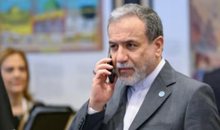
Iran condemns US attack on nuclear facilities, warns of consequences
2025-06-22 11:34:21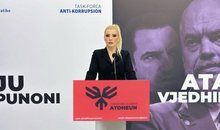


Albanian Railways is affected by collective staff cuts
2025-06-22 10:46:46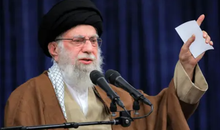
The US has changed the course of the conflict - how will Iran respond?
2025-06-22 10:24:26
Cannabis in drainage canals, 48-year-old arrested in Fier
2025-06-22 10:06:41
Albanians 'invade' New York, thousands march in the Red and Black parade
2025-06-22 09:44:26
Foreign exchange, the rate at which foreign currencies are sold and bought
2025-06-22 09:27:27
Is it worth buying an apartment to rent out?
2025-06-22 09:12:40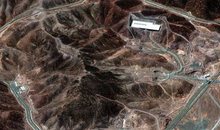
US bombs Iran, hits three Tehran nuclear sites
2025-06-22 08:53:08
